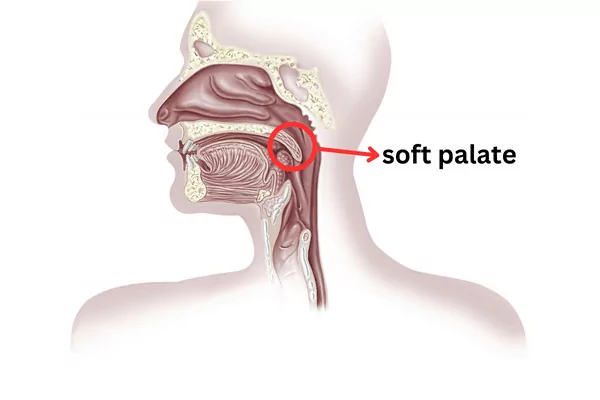Congestion can be a real problem for singers, causing breathing difficulty, voice hoarseness, and poor vocal tone. Not only can it cause your voice to be muffled and unclear, but congestion can also cause unnecessary strain on your vocal cords, which could eventually lead to damage. If untreated, it can cause your upper respiratory tract to become clogged with mucus, which lowers your vocal range, causes you to lose higher notes, and gives your voice a huskier, possibly even cloggy tone.
Fortunately, there are some actions singers can take to minimize the effects of congestion and improve their singing performance to let their real voice shine. This article will offer helpful tips and techniques to help singers like you to reduce congestion and enhance vocal clarity.
Key Takeaways:
- Knowing the cause of congestion will help you figure out how to alleviate it
- Take preventative measures when possible
- See a doctor when home remedies aren't enough
Understand the Causes of Congestion in Singing
It can be difficult to sound your best if you're suffering from congestion. That's why as a singer, it's important to understand the causes of your congestion so you can take appropriate steps to combat it. Below are some of the factors that can cause congestion and affect your vocal performance:

Allergies
Allergies are one of the most common causes of congestion for singers. Allergic reactions can cause inflammation in the throat, nose, and sinuses, increasing mucus production. If you suffer from allergies, you may experience difficulty breathing, throat itch, and a stuffy nose.
Colds
Your vocal cords can become inflamed and swollen during cold infections, which causes your voice to sound raspy or hoarse. They may also swell if you strain to speak through a cold, resulting in other conditions, such as laryngitis. During this time, you might feel your blocked-up nose contracting, and voice quality may change, especially while singing.
Sinus Infections
Sinus infections develop when fluid accumulates in the air-filled facial pockets. This can worsen if the germs continue to flourish due to untreated fluid buildup. This infection typically has a duration of less than four weeks, but in certain cases where no treatment is given, it can last longer than twelve weeks.
Acid Reflux
One of the most common characteristics of acid reflux is the burning sensation in the chest that results from stomach acid moving back up through the throat. It can cause tightness in the throat and chest, coughing, hacking, and even lead to sinusitis. If it becomes more serious, acid reflux can become GERD (Gastroesophageal Reflux Disease). This stomach acid back-flow becomes a chronic condition that gradually harms the voice and your body.

Excessive Drinking
Alcohol consumption can have a significant effect on your vocal cords. When you drink excessively, your throat and lungs become inflamed and dried out, which reduces your vocal control and range. Additionally, alcohol can interfere with the production of saliva, which is necessary for healthy vocal cords. An intolerance or allergy to alcohol can also lead to a stuffy nose.
Smoking
Smoking has been linked to many respiratory issues, including increased mucus production and inflammation of the throat tissues resulting in a "smoker's voice" or raspy sound. It irritates your vocal cords and throat due to the toxins from the smoke. It also causes swelling and inflammation, which can reduce airflow and impair singing ability. We strongly advise that singers avoid smoking altogether as it can cause permanent damage to their vocal cords over time.
Stress
Too much stress can cause physical tension in the body, which can lead to vocal tightness and strain, and yes, nasal congestion as well. Stress can also affect your breathing patterns and cause poor posture, both of which can increase the risk of developing vocal cord damage or nodules. We recommend practicing relaxation techniques such as yoga or meditation to combat this issue. These activities can help reduce tension in the body and improve breath control for better singing performance.
High Soft Palate

It might be your singing technique that is causing your singing voice to sound congested. The soft palate, a flexible tissue located at the back of the roof of your mouth, plays a crucial role in shaping the quality of your singing voice. When your soft palate is raised too high, it can lead to a congested and muffled sound in your singing. This is because a high soft palate can block off the air passage between the throat and the nasal cavity. As a result, you might sound like you have a cold even if you don't, and your singing voice may lack clarity and projection. It's essential to work on techniques to lower and control the soft palate, allowing for a more open and resonant sound that can truly shine.
Congestion can have a significant impact on your singing. For one, the increased mucus production can coat your vocal cords and cause them to vibrate differently. Additionally, it can reduce airflow and make it difficult to reach high notes. In order to avoid these issues, it's essential to understand the causes of congestion, and taking appropriate steps to manage it can help you avoid vocal problems and sound your best when performing.
Vocal Warm-Up Exercises
Vocal warm-up exercises are an essential part of any vocal practice routine. They help to prepare the voice for singing by loosening and warming up the muscles in the throat, tongue, and jaw. The vibrations created from working through certain vocal warm-up sounds and exercises can loosen built up mucus, and increased blood flow can alleviate inflammation. Vocal warm-up exercises can also help you improve your breath control and reduce tension.
Along with that, you can also do breathing exercises to help reduce congestion before singing. Any great singer understands the value of developing their voice, and breathing techniques are a cornerstone of that development. An exercise like lip trills (also called lip bubbles) provides a great amount of vibrations while also helping you balance your breathing.
Hydration and Nutrition

Hydration and proper nutrition are essential for maintaining healthy vocal cords and avoiding congestion. It can take up to 4 hours for water to "reach" your vocal folds, so it is ideal for singers to focus on keeping the entire body hydrated to ensure the vocal folds stay properly lubricated, enabling them to vibrate fully.
Singers are also not advised to consume too many dehydrating beverages, such as alcohol and caffeine, as they can trigger congestion. In addition to having an anesthetic effect that makes one press their vocal cords together more forcefully to achieve a normal sensation while speaking or singing, alcohol includes substances that dehydrate your body, decreasing your voice's ability to recover from stressful vocal use. Meanwhile, caffeine disrupts the flow of your mucus and dehydrates you. Additionally, it tends to tighten your muscles, putting unnecessary and harmful strain on your vocal cords. Be sure to hydrate appropriately daily to avoid dehydration, which manifests through:
- Thirst
- Dry mouth
- Lightheadedness
- Exhaustion or fatigue
- Throat itch or constant need to clear your throat
Along with that, proper nutrition is crucial to ensure that your body and voice get the necessary nutrients. Eating a healthy and balanced diet with lots of fruits, leafy greens, and lean proteins will give your vocal cords the vitamins and minerals they need to remain healthy. Avoid consuming too much unhealthy and processed food, as these can dehydrate you, cause fatigue, or increase mucus production which can lead to bad vocal habits that can damage your throat and voice. With proper hydration and nutrition, you can lessen the risk of having a congested voice that can cause vocal fatigue, strain, or impairment that can impact your singing career.
Home Remedies for Relief

There are a couple of home remedies that you can use to help manage congestion when singing. These remedies can help reduce inflammation and loosen mucus to help you sing better and with clarity.
Steam inhalation
Inhaling steam helps to open up your nasal passages and reduce sinus pressure, as well as thin mucus so that it can be expelled more easily.
Saline Nasal Rinses
Saline nasal rinses are a great temporary aid for congestion as they help in the removal of allergens, debris, and mucus.
Herbal Teas
Herbal teas can be beneficial in alleviating throat congestion. Herbs such as ginger and licorice root have anti-inflammatory properties that help reduce swelling and soothe soreness.
Humidifier
Adding moisture to the air can help relieve congestion and keep your vocal cords hydrated. Using a humidifier at home or work can be especially beneficial.
Avoid irritants
If you suffer from allergies or other respiratory issues, avoiding triggers like smoke, dust, and pet dander can help reduce symptoms of congestion that may affect your singing voice adversely.
When to See a Doctor

Your doctor should be your go-to expert if you're experiencing congestion or other symptoms that may require medical attention. They can assess your condition and provide appropriate treatment to reduce congestion and help you regain your voice, especially when home remedies are not enough. At the same time, they can also ensure to find if your symptoms have an underlying medical condition that needs to be treated immediately.
Improve the Sound of Your Voice
If you're a singer or aspiring to become one, take time to implement these tips and techniques to avoid congestion and improve your vocal performance. Remember that by prioritizing your vocal health, staying hydrated, practicing good breathing techniques, and seeking out medical attention as needed, you can have a fulfilling career in singing. Most importantly, seek a vocal coach to help you master the proper methods and practice regularly. With dedication and patience, you can have the vocal performance of your dreams, and congestion won't be a hindrance!
Staying in Touch
If you want to know more about John, you can visit johnhenny.com. There you can listen to previous episodes of The Intelligent Vocalist podcast, as well as access his blog posts. Join John's mailing list to get special offers that are exclusive to his mailing list, and stay up to date on new courses and books.